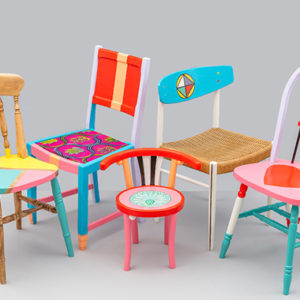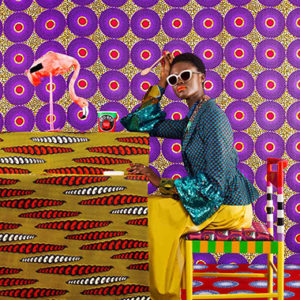Janelle Monae’s visual album shows the everyday problems people of color face in a way that fuses past and present. The visual album consisted of a series of music videos that contributed to the overall story or theme. Continue reading “Janelle Monae’s Dirty Computer”
Janelle Monáe Learned from the 60s: Lorde’s Legacy in Dirty Computer
While speaking on Malcom X at Harvard in 1982, Audre Lorde foregrounded the imperative of intersectionality in social movements. Whereas most people maintain several complex, interacting identities, popular discourse often fails to account for more than one at a time. Lorde, however, distinguished herself as a fierce advocate for acknowledging, validating, and incorporating the variation of identity and experience within the black community, particularly as it pertains to gender and sexuality. In defining her politics, Lorde invoked her own identity, making it a corroborating point in the case for intersectionality: “As a Black lesbian mother in an interracial marriage, there was usually some part of me guaranteed to offend everybody’s comfortable prejudices of who I should be,” (4). With this statement, Lorde speaks to the importance of recognizing how various social identities can reach a nexus point in one individual.
In Dirty Computer, Janelle Monáe employs an Afrofuturist narrative arc to epitomize Lorde’s doctrine of intersectionality. Continue reading “Janelle Monáe Learned from the 60s: Lorde’s Legacy in Dirty Computer”
Oh Lorde, Us Men Gotta Be More Pynk

In my youth, I grew up with women. My mother, grandmother, and the majority of my teachers were women. In particular, a number of them were poor, some openly and others not LGBTQ and/or people of color. Yet I, for a long time, took no part in wanting to think about it. For me, I had internalized a sense of want in masculinity because for so long, being blue was pushed upon me. However, I would argue that I have improved from that stage of hypermasculinity and Audre Lorde’s “Learning from the 60s” and Janelle Monae’s album Dirty Monae remind me why us boys have a lot to learn from as Monae puts it the “pussy riot”. Continue reading “Oh Lorde, Us Men Gotta Be More Pynk”
Butler: Emphasizing the “Afro” in Afrofuturism
Standard conceptualizations of Afrofuturism tend to focus heavily on the technological aspect of futurity, particularly as seen in Black Panther, with their tech developments, and even in Space is the Place, which foregrounds extraterrestrial exploration. In Parable of the Sower, however Octavia Butler presents an alternative approach to Afrofuturism that seems to prioritize the “Afro” aspect more heavily than a sci-fi based tech world. Although a dystopian science fiction, Parable of the Sower seem to examine more intensely the religious and communal structures within black culture that might contribute to an specifically black vision of the future: Continue reading “Butler: Emphasizing the “Afro” in Afrofuturism”
Afrofuturism in Music: King Kunta by Kendrick Lamar
Afrofuturism can be shown in many ways such as fashion, art, architecture, and even music. To me afrofuturism is bringing in a little of the past, putting a spin to it by bringing current trends/events. In black culture especially you can see this. Continue reading “Afrofuturism in Music: King Kunta by Kendrick Lamar”
Repetition in Black and White Cultures
In James Snead, “Black Literature and Literary Theory” he goes in to talking about Black and European cultures. Specifically the meaning of repetition and circulation and how that contributes to the two different cultures. On page 67, the second paragraph, Snead explains how in black culture repetition gives a sense of equilibrium or state of mind. On the other hand European culture, repetition can not be shown everything must seem like a progression even when it is not. I agree completely with this statement and to add on you can see this even now in today’s society in American culture as a whole. In African American culture we often love to incorporate history in our music and arts. As a way to never forget where our ancestors and people before us came from. In a way this gives us a state of mind.To remember we got this far from the struggles we face before. Continuing to give this cycle of remembrance brings a sense of pride and faith to the black culture. However with European culture I feel like it’s the exact opposite. You can noticeably see this in American politics as well. On media politicians like to sell themselves as being able to make progression happen in America. Politicians make it seem like America is at a standstill, America needs help and it needs a goal and they can help achieve it. This sort of need for progression and goal reaching is what people from western civilization want. Many do not take a step back and look at the things America has overcome as whole.
Liberia? Melvin Tolson
“Liberia?
No side-show barker’s bio-accident,
No corpse of a soul’s errand
To the Dark Continent:
You are
The lightning rod of Europe, Canaan’s key,
The rope across the abyss,
Mehr licht for the Africa-To-be!”-Melvin Tolson, “Do”
Liberia and Africa as a whole from the western perspective is often seen as impoverished a and dying land. Tolson uses a different perspective when talking about Liberia. In his poem “Do” he starts each stanza with “Liberia?” and he starts off with the negative connotations of Liberia then as a rebuttal says what he sees Liberia as. To him, Liberia is what lights up Europe, in a way Liberia is what makes Europe Europe. Without Africa how would Europe be now in today’s society? This stanza reminds me a lot about activism. To me, activism is about going against something or defending your belief. Tolson throughout this poem defends his beliefs about Liberia. In a way, this can also connect back to Afrofuturism. Afrofuturism can deal will the progressive nature of African culture specifically Liberia’s culture. Afrofuturism can be about accepting and taking pride in your culture. Especially since African people are usually forced to assimilate into European culture.
A poem of Tolson’s I had difficulty understanding was “Mi”. Throughout the poem he repeatedly uses the phrase “Future Afrique” I tried to research the term but nothing seemed to define what it meant. However, if you were to split future Afrique it kind of sounds like future Africa. Which can also relate to our topic of Afrofuturism.
Parable of the Sower
While reading Chapter 6 of Parable of the Sower by Octavia E. Butler I realized this book has a lot to do with futurism. From reading Snead’s article and from the discussion we have in class I think it is safe to ass futurism has something to do with. Continue reading “Parable of the Sower”
Afrofuturism in furniture



When I started looking for Afrofuturism case studies, I mostly understood the kinds of art that fell into the category, but really struggled to see more day-to-day manifestations of the same Afrofuturist impulse. Although I’ll probably end up doing my final project on Octavia Butler or another Afrofuturist literary figure, I found, for this assignment, a really interesting example of Afrofuturist design, specifically as it relates to furniture, which really departs from the text-based analyses we’ve primarily focused on so far.
Working out of London, the designer Yinka Ilori repurposes furniture in an up-cycling operation. Within this project, Ilori upgrades old furniture to make a statement on the value of “old” items and, furthermore, undermine the consumer society’s incentives to purchase constantly new products that don’t fill a need any greater than that product which one already has. To honor his heritage, Ilori decorates the upcycled furniture with vibrant colors and geometric designs, in the same vein as the dominant designs in Nigeria (the place to which he pays homage).
Based on what we’ve learned, Ilori’s work seems to epitomize the value that Snead puts on repetition within black culture: “Black culture highlights the observance of such repetition, often in homage to the original generative instance or act,” (65). Indeed, with his furniture, Ilori both honors Nigeria and rejects the principles of vapid consumerism that Snead explicitly associates with white culture.
Mr. Hughes And “Lieder”
Of all the readings so far, I have enjoyed Langston Hughes the most. I grew up with a copy of “I wonder as I wander” flouting around my house and ever since I read that beautiful title I have been intrigued by Mr. Hughes.
